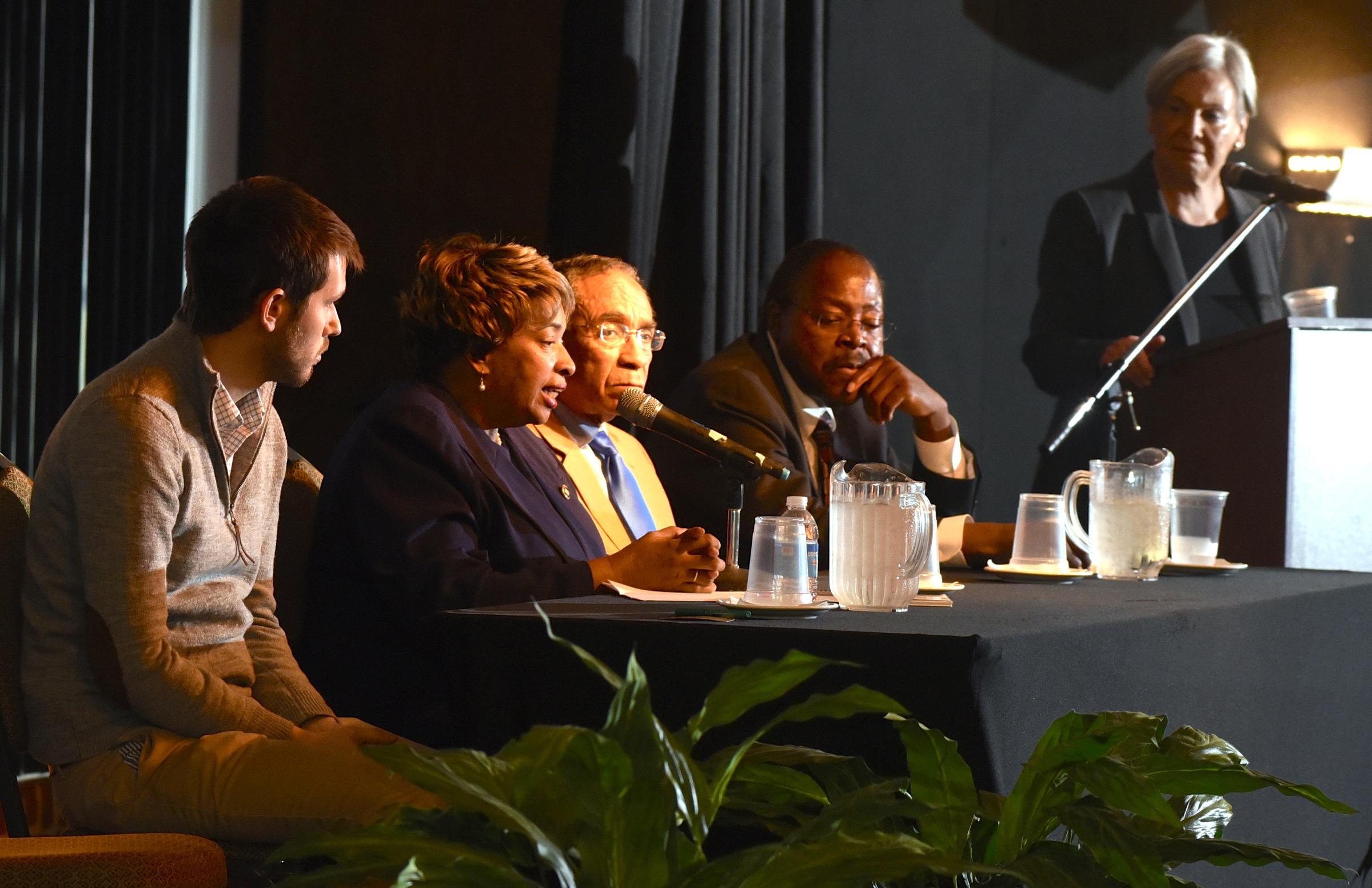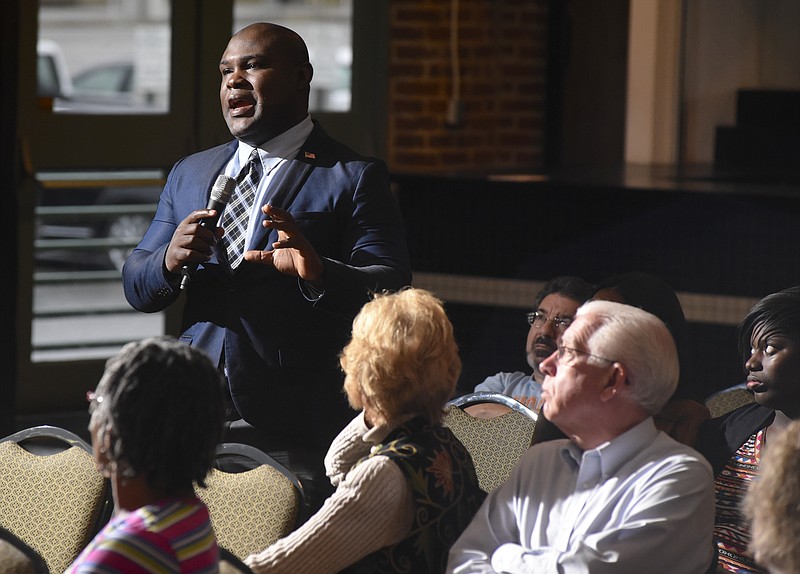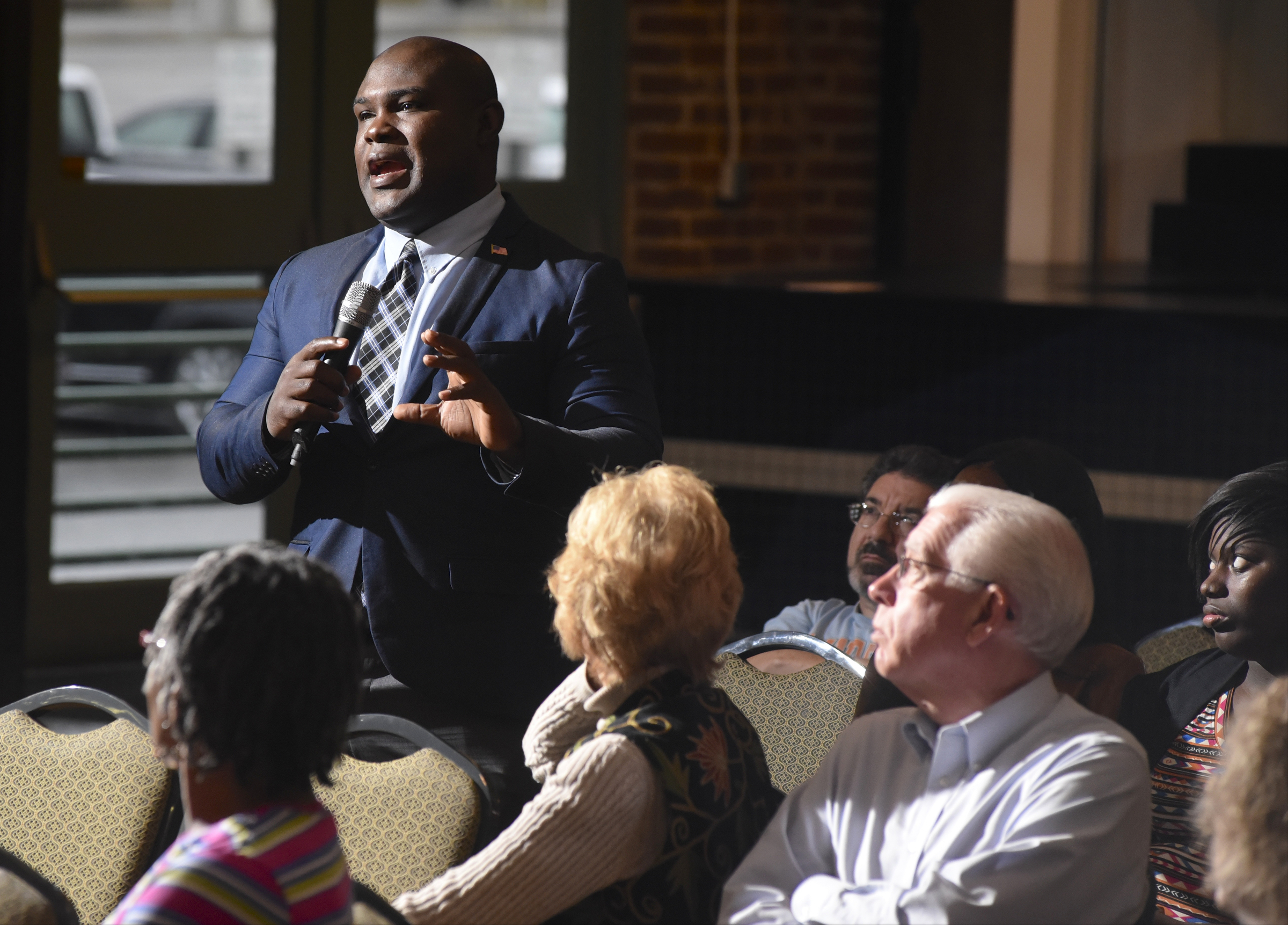 UTC history professor Dr. Will Kuby, State Rep. JoAnne Favors, Booker T. Scruggs, II, Judge John McClarty and Chattanooga City Council Chairman Carol Berz, from left, participate in an event at the Bessie Smith Cultural Center on Sunday, Nov. 1, 2015, in Chattanooga, Tenn., to discuss the impact of the 13th Amendment.
UTC history professor Dr. Will Kuby, State Rep. JoAnne Favors, Booker T. Scruggs, II, Judge John McClarty and Chattanooga City Council Chairman Carol Berz, from left, participate in an event at the Bessie Smith Cultural Center on Sunday, Nov. 1, 2015, in Chattanooga, Tenn., to discuss the impact of the 13th Amendment.Diversity brings unity and unity brings diversity.
That's the theory of Brainerd High School Assistant Principal Charles Mitchell, and it was on display Sunday at the Bessie Smith Cultural Center.
A racially diverse group of students from Brainerd High, McCallie School, Baylor School and Girls Preparatory School gathered as part of a community event commemorating the passage of the 13th Amendment, which made slavery illegal 150 years ago.
Their task was not to explain the historical significance of the 13th Amendment - groups from the National Park Service and Chattanooga History Center handled that - but rather to explain why it matters today.
"I think it's particularly special to celebrate the 13th Amendment, because I think sometimes it's taught that racism all ended after slavery did, or after the civil rights movement, and that's not true," said Anna Shaw, a junior at GPS who is white.
"It's important today because it can remind people of social injustice," added Christian Sinclair, a Brainerd student who is black. "Racism is still alive today, unfortunately."
Teachers from the schools began coordinating last year on ways to bring groups of students together to help in overcoming what Mitchell calls a "relationship problem" in the country.
They are all juniors or seniors and their different backgrounds ensure they are exposed to an array of perspectives that they might not get inside the walls of their respective schools.
"We've got to be able to come together and find common ground," Mitchell said. "That's why I've got my students involved with others from different races and economic backgrounds, because you've got to look at things from more than just your viewpoint."
Mitchell wants to expand the model and incorporate more schools. If the next generation can learn how to have healthy dialogue involving different ideologies, he believes it could help the country take a step forward and continue to build on historical milestones like the 13th Amendment and the civil rights movement.
The students agree.
"We're finding that not all of us have the same opinion about these conversations," said McCallie junior Darius Emmanuel, who is black. "We're getting ourselves together to talk about these issues, and that's how change happens."
Contact staff writer David Cobb at dcobb@timesfreepress.com or 423-757-6249.

